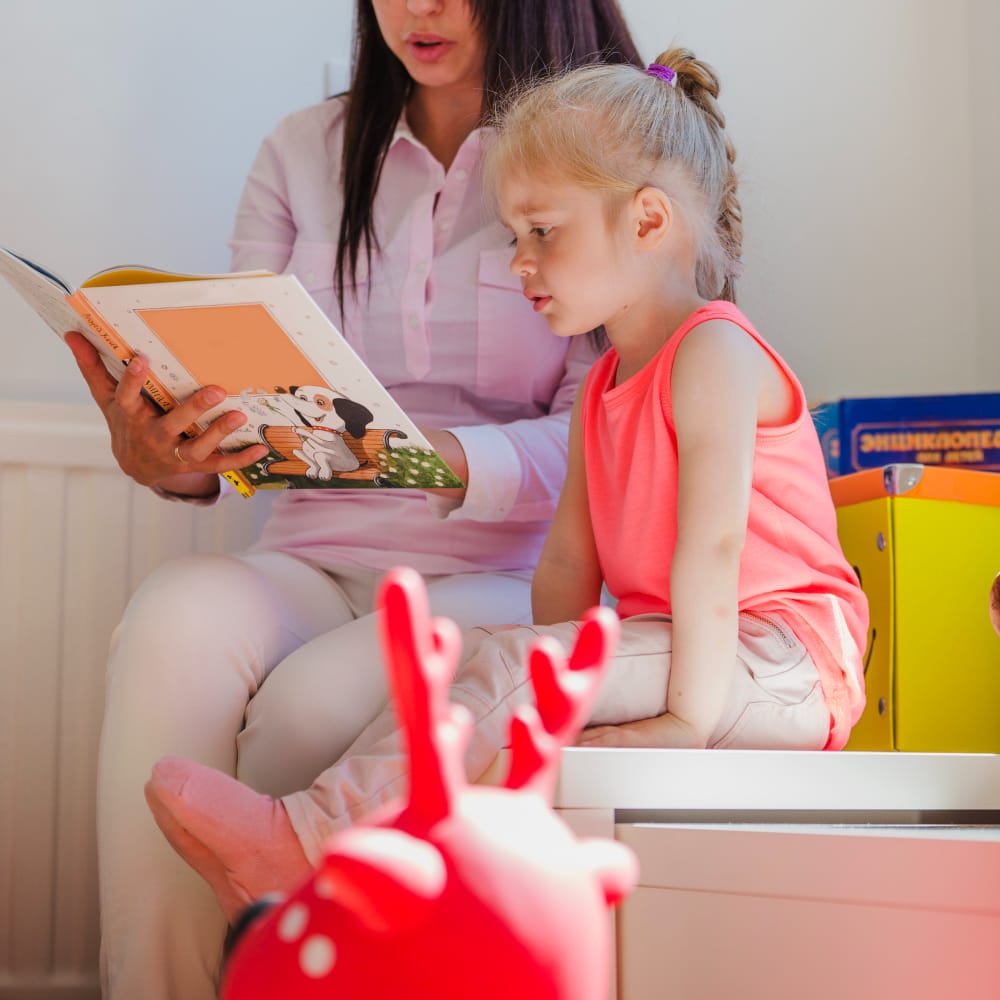 The following aspects are all important in accurate auditory perception:
The following aspects are all important in accurate auditory perception:
Auditory figure ground
Enables one to focus on one sound between a background of other sounds. Children need this ability to be able to hear their teacher’s voice in a noisy classroom.
• Play background music, while giving the child different instructions. See if he can manage to hear what you are saying against the background music. Use a softer tone of voice to make it more difficult.
• Whisper instructions and see if the child can manage to execute the instructions correctly.
• Record noises in and around the house. Play the recording to the child and ask him to identify the sounds. You can also play music softly in the background to make this task more challenging. Also ask the child to guess whether the sound is close by or far away.
Auditory discrimination
The ability to hear similarities and differences between sounds. For instance, perceiving the difference between “mouse” and “house”.
• Take four to six tins. Put beans in two tins and fill the rest with a variety of different materials (e.g.: rice, sago, lentils, spit peas, etc). Have the child shake the tins and tell you which two tins contain the same material (the child thus has to “match” the tins that sound similar when shaken). Have the child shake all the different tins and tell you what material he or she thinks is in each.
• Take five glasses, fill them up to different heights with water. Let the child use a spoon to hit lightly against the side of each glass and have him listen to the different sounds these make.
• Play around with rhyming words (e.g. “The fat cat sat on the mat patting the rat with the hat”).
• Play around with popular nursery rhymes or songs, substituting as many of the rhyming words with similar sounding words. E.g. “Little miss puppet sat on a crumpet, eating her birds of prey … Have a competition to see who can come up with the silliest sounding rhyme or put together a book of your own nursery rhymes.
• Play “Wolfie, wolfie what’s the time?” In this game one person is chosen to be “Wolfie”. Wolfie walks in front with all the other children following him / her in a long line. The children shout “Wolfie, wolfie what’s the time” to which wolfie gives various answers, but when wolfie replies “lunchtime” the other children run away while wolfie tries to catch them. The child who is caught takes over as “Wolfie” and his predecessor joins the other children in the line.
• Play “Simon says”.
Auditory closure
Enables the child to complete or add sounds which were not heard, in order to understand what was heard.E.g. when the teacher talks to the child and a truck goes by, he might only hear “Go and fe … your bo…” and needs auditory closure to understand that the teacher meant “Go and fetch your book.”
• Play the following guessing game: Give children the first few syllables of a word and ask them to “guess” which word you are trying to say. Aero … (plane); Dino … (saur); Rhinoce … (ros); Hippopot … (amus); etc.
• Closely connected to auditory closure is the process of syllabification (breaking words up into their different syllables). Play the clapping game, in which you ask children to “clap the different parts of the words”. They might initially need some guidance with this task, but usually catch on quite quickly as syllables form a natural part of speech. E.g. Di/no/saur; Ae/ro/plane etc. It is also important to start with shorter words (e.g. Rat – one clap) and then progressively move on to words with more syllables (e.g. spi/der – two claps; Christ/mas/tree – three claps; Rhi/no/ce/ros – four claps; Hip/po/pot/a/mus – five claps).
Auditory spatial awareness
Enables one to determine the direction from where a sounds comes from, thus the source of the sound. This skill enables the child to hear sounds in the correct sequence, i.e. “mood” and not “doom”.
• Blindfold the child and have them sit in the middle of the room. Walk around the room calling out to the child (or shaking a bell / rattle) and have the child point to where you are.
• Play “Marco, Polo” with a group of friends. This game does not necessarily have to be played in the pool, but can be played in the garden or in the house – just remember to clear the room of furniture so as to avoid injuries from children bumping into furniture or tripping on loose rugs.
Auditory analysis and auditory synthesis:
Analysis refers to the ability to divide words into syllables (and also the ability to divide sentences into words), i.e. Spiderman = Spi + der + man. This skill is essential for accurate spelling. Auditory synthesis refers to the ability to put sounds or words together to make a new word or sentence, i.e. c + a + r = car. This skill forms the basis for reading.
• Syllabification (breaking words up into their different syllables) is an important part of this process as well.Play the clapping game, in which you ask children to “clap the different parts of the words”. They might initially need some guidance with this task, but usually catch on quite quickly as syllables form a natural part of speech. E.g. Di/no/saur; Ae/ro/plane etc. It is also important to start with shorter words (e.g. Rat – one clap) and then progressively move on to words with more syllables (e.g. spi/der – two claps; Christ/mas/tree – three claps; Rhi/no/ce/ros – four claps; Hip/po/pot/a/mus – five claps).
• Play “I spy”, for instance “I spy with my little eye something that begins with a P” remember, when playing this game with your pre-school child, to use the phonetic sounds of the initial letters and not the actual letter names thus, P = PUH and not PEE; K = KUH and not KAY; I = IE and not EYE, and so on.You can also adapt this game to focus on different parts of words, for instance: “I spy with my little eye something that ends with oat (e.g. boat / goat / coat) – this version of the game, if used with simple words, might be easier for very young children and acts as an easy introduction to rhyme.
• Say the different sounds of short words and have children “guess which word the sounds make”. E.g. What word does c+a+r make? Once again, remember to use the phonetic sounds of words and not the letter names with young children. So, “what word does “Kuh-Ah-R” make? As children get older (at about 5 or 6 years of age), you can also ask them to break short words up into their separate (phonetic) sounds. For instance: “Which sounds are in the word bat?”
Auditory memory:
The ability to memorise the information received from the ears.
• Clap different sequences with your hands, asking the child to copy you. Use longer sequences as children get older.
• Play “Mom went to the shop”. In this game children (or any willing family members) sit in a circle and one person begins the game by saying, for instance: “Mom went to the shop and bought flour”. The person to the left repeats this sentence and then adds another item, for example “Mom went to the shop and bought flour and apples”. The game goes round and round the circle with each person adding another item to the list until somebody finally forgets to name one of the items on the list. It might be difficult for young children to remember the items in the correct sequence, but older children should be encouraged to name the items in the correct sequence. You can also change the context of the game, for instance:“We went to the zoo/circus/aquarium/park/farm and saw …” – this will also help children with their categorization skills later on.
• Ask your child to recite your home number, office number and cellphone number as well as the numbers of friends and other family members.
• Have children help you remember your shopping list.
Related Articles: Auditory Processing Disorder




3 Responses
Hi there,
Could you please tell me who usually carries out a central auditory perceptual assessment and what is the cost roughly?
Hi Priscilla,
For an Auditory Processing Disorder you want to contact an Audiologist / Speech Pathologist that specialises in this field. Try Deidre Stroebel and her colleagues if you live in the Cape Town area.
hi thanks for sharing this post. i have two rehabilitation center in iran .
i translated your post to my language.
good luck